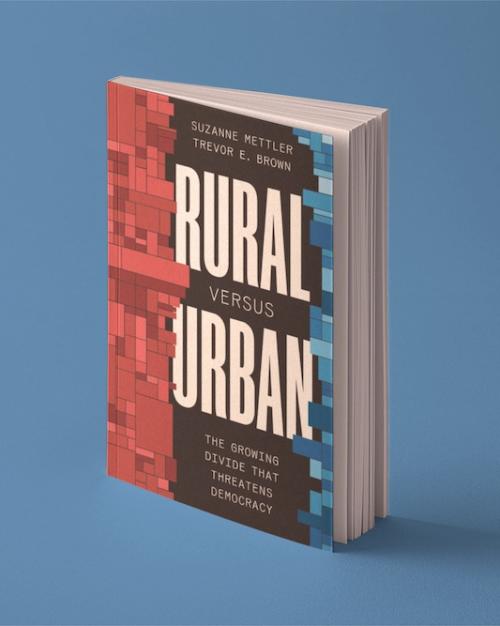“Criminalizing Immigrants: Border Controls, Enforcement and Resistance,” Nov. 9-10, brought together researchers and academics from a range of disciplines at Cornell University and institutions across the U.S. to examine the causes and consequences of the criminalization of immigration.
“This year’s conference examined a social issue – the criminalization of immigration – that has significant repercussions for families and communities across the globe,” said Kelly Musick, professor of policy analysis and management and director of the Cornell Population Center, a hub for demographic research and training at the university.
“I think that there is no topic that has captured so much of personal and public attention, and certainly political discourse and divisiveness, than the topic of immigration …,” said Kim Weeden, chair of the Department of Sociology and director of Cornell's Center for the Study of Inequality.
Mathew Hall, associate professor of policy analysis and management and training director for the Cornell Population Center, said, “Immigration plays a crucial role in racial diversification, but immigrants are often the first to blame when economic, social or political conditions deteriorate.”
“We hope to shed light on both the causes and consequences of immigration enforcement policies, which have intensified in countries across the globe,” he said. “In bringing together some of the newest and most innovative work on immigration, we hope to actively contribute to ongoing policy discussions and to stimulate new directions for relevant research.”
Topics included the impact of immigration enforcement on economic well-being and community cohesion; the responses of migrants, their families and employers to increased efforts to detain and deport migrants; new patterns of inequality that emerge from greater enforcement; and state, municipal and “third sector” responses to the changing needs of immigrant communities affected by detention and deportation.
David Cook-Martín, professor of sociology at New York University-Abu Dhabi presented a keynote address, “How Nation-States Enforce Boundaries: The Reconciliation of People and Markets Through Migration Policy,” on his research to understand migration, race, ethnicity, law and citizenship in an international context.
Mathew Coleman, associate professor of geography at Ohio State University, presented “‘Cold Casing’ Racialized Police Power and the Closure of Law Enforcement,” reviewing field work findings from Georgia and North Carolina on the intersection of traffic policing and immigration enforcement to open a larger set of questions about how critical researchers might approach the problem of racial profiling.
The majority of the conference was dedicated to academic participants presenting research in progress and moderating symposium-style discussions around research findings and possible next steps for the work.
“These are empirical papers written by social scientists, primarily sociologists with collaborators in public policy,” said Shannon Gleeson, associate professor of labor relations, law and history at the ILR School. “The way we think about the criminalizing aspect of this has not really been at the mainstream of a lot of immigration literature in sociology, which has been interested traditionally in integration and how people assimilate or get folded into society, and this is much more about the exclusion part of it … .”
According to organizers, questions about the connections between people, communities and governments cut across many disciplines, and the Cornell Population Center’s ability to bring people together from across Cornell and academia is critical to engaging in effective policy discussions.
The conference was supported by the Frank H.T. Rhodes Symposium Fund, the Atlantic Philanthropies, the Cornell Population Center and the Center for the Study of Inequality.
This article orginally appeared in the Cornell Chronicle.





